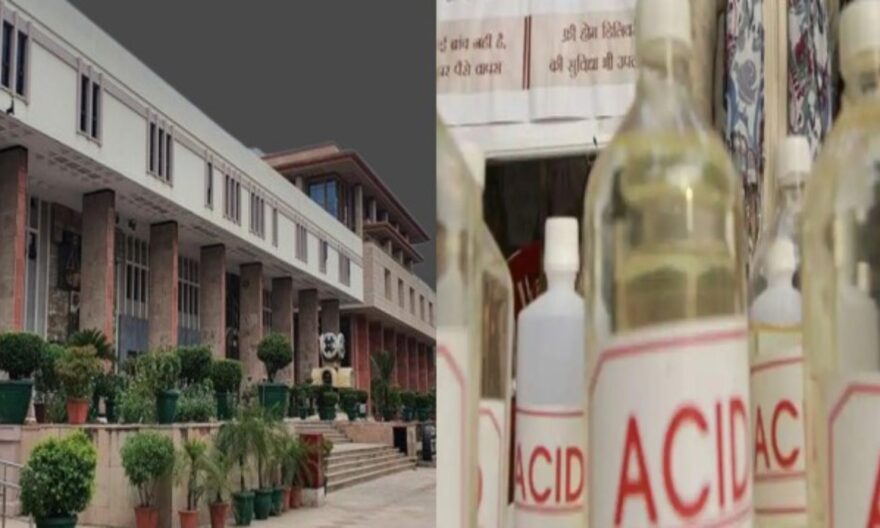
The Delhi High Court on Thursday refused to impose a complete ban on over-the-counter sale of acid in retail stores within the national capital.
A division bench of Chief Justice Satish Chandra Sharma and Justice Sanjeev Narula asserted that a total ban on acid sales could have unintended repercussions, impacting sectors where acid is lawfully and safely utilized.
“Therefore, striking a balance between public safety and the legitimate uses of acid for industrial and other regulated purposes is crucial. Acid serves various legitimate uses and applications in different industries, and a blanket prohibition could inadvertently affect businesses and individuals who require it for lawful purposes,” the order reads.
The bench was hearing a plea by Shaheen Malik, an acid attack survivor, who sought a ban on the over-the-counter sale of acid and the repeal of the amendment to the Delhi Poisons Possession and Sale Rules, 2015, allowing acid sale in licensed stores.
While rejecting a blanket ban, the Court emphasized that the focus should be on stringent implementation of existing rules and regulations governing acid sales. The government has been directed to take swift and decisive action against offenders in case of violations.
Additionally, the Delhi government has been instructed to conduct a comprehensive empirical study to assess the potential consequences of a complete ban on acid sales on various sectors, individuals, and businesses.
Top of Form
“The study should analyse the historical data on acid-related incidents and also examine the effectiveness of past regulations and their impact on reducing incidence of acid attacks. This enquiry should also explore alternative measures to enhance public safety, in the event a total prohibition is found inviable. For these purposes, engagement with various stakeholders, including advocacy groups, industry representatives, legal experts and medical professionals can provide valuable insights. Based on the findings of the empirical study, GNCTD can analyse and identify any gaps or shortcomings in the existing regulatory scheme and take a well-informed decision,” it added.
The Bench made it clear that its ruling should not be interpreted as a definitive conclusion on the matter, and the petitioner retains the option to approach the Court again if breaches of regulations persist. The Court also commended the petitioner for their efforts in assisting and rehabilitating other acid attack survivors.
“It is our hope that the GNCTD and the Delhi Police will approach this matter with utmost seriousness and will demonstrate a vigilant and decisive approach in strict implementation of the provisions of law. The material enclosed with the petition will be carefully scrutinized by them to assess the gravity of the ground situation while implementing the afore-noted directions,” the bench stated.




